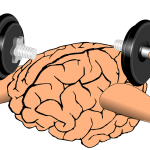5 Rules to Help You Quit Sugar by Joan Kent, PhD
These days, everyone seems to know that sugar’s bad news and should be avoided.
Sometimes I feel I’ve heard every possible problem connected with sugar, but a few problems pop up over and over again. Here are some rules to get you past the common ones and help you quit.
(Please note: This isn’t a quitting procedure, just guidelines for getting ready to quit.)
Dr. Joan’s Rule 1: Get Your Quitting Mindset On
My client had been in recovery from alcohol for 20-plus years and now wanted to quit sugar. That’s why she called me. As you’ll see, something was missing from her sugar mindset that she had put in place with alcohol.
Regarding sugar, my client had hit bottom. She felt disgusted with her behavior around sugar, was fed up with being out of control. She felt embarrassed by weight she couldn’t lose and how unattractive it made her feel. She was angered by her lack of “willpower” and open to a better way.
She decided to get sugar out of her life. Excellent decision.
She did quit, and also lost 14 pounds. Gym members and other trainers were raving about how great she looked. She was well on her way.
But the holidays were coming up, and she wanted to enjoy her daughter’s extraordinary pie on Thanksgiving. I warned against it, but she was determined to have the pie. And she did.
That triggered backsliding and included a return of cravings, weight, and more. I didn’t ask how it made her feel because her face (even her posture) said it all.
Sadly, this story doesn’t end with a victory. She and I had 2 more appointments before she had to end our nutrition coaching for financial reasons. I understood, of course, but it was a terrible time to go out on her own.
Yet it does highlight a part of the Quitting Mindset I hope this client has now found.
Resolve.
A promise to herself never to give up. A decision that her recovery from sugar is as important as her recovery from alcohol. A promise that she’ll keep doing what made her successful in the first place … until she absolutely knows with confidence that she can stay away from sugar as successfully as she has stayed away from alcohol for 20 years.
Your Mindset Tip
You’ll have cravings, and they’ll make you sway in your decision. You’ll see temptations everywhere. They may cause you to backslide. Don’t give up!
Instead:
Immediately go back to doing what was working. Learn the lesson and get back on it!
“Failure is only an opportunity to begin again, this time more intelligently.” – Henry Ford
Dr. Joan’s Rule 2: Follow a solid system.
It’s easy to find questionable “wisdom” on websites, on podcasts, in magazines, in books. But it’s not a good idea to cobble your plan together from a mishmash of unrelated bits of advice.
In truth, the clients I’ve had the worst results with have been those who try to fit my recommendations into a so-called plan they’ve patched together from everyone’s advice: their chiropractor, a neighbor, a dietitian, their best friend, and so on.
It’s not a plan; it’s a hodgepodge.
Instead:
Find a real plan and stick with it. Stop jumping from guru to guru, book to book.
I quit sugar before it was even recognized as harmful. And I had to piece my process together from my doctoral research.
Not every step was a clear one forward because the research didn’t set out steps for quitting sugar. This was long before folks had the mindset of trying to quit.
My reading was on neurochemistry and radio assays performed on rat brain. (!!) Seriously.
Well, I backslid in my sugar journey, and sometimes pretty far. My persistence and my continued research eventually led to a solid, science-based system for quitting.
Use a quality system.
Dr. Joan’s Rule 3: Prepare to quit. Quit. Take it a day at a time. Don’t quit.
For someone who’s hooked on sugar, just thinking about giving it up is scary. After all, any addict knows about the cravings and symptoms that tend to occur if and when they try to go without sugar.
Going without it forever seems worse – not only scary, but also impossible. And dismal. How can life be worth living without sugar?
Here’s the good news. What’s true about giving up sugar is things change. A lot.
Once you’re past the addiction, other foods start to taste different. Better. (Yes, really.) Foods that aren’t sweet can taste delicious when you’re no longer hooked on wanting everything to taste sweet.
Here’s another change. After going without sugar for a while (6 to 12 months, not just a few days), you may be able to eat a small taste without experiencing any relapse. I don’t necessarily advise it, however, and you have to know yourself well.
The bad news is it won’t be possible to go back to eating the “old way” without rekindling your sugar addiction. But since that ‘old way’ may have caused the health, mood or focus problems that made you decide to quit, how bad is it really to let it go?
Instead:
- Commit to your health. Take the big step of quitting sugar. And trust the process.
- Keep liquid B-complex (all the B vitamins) on hand. Take 1 teaspoon when you have a craving. [Important: check with your doctor to make sure this strategy is okay for you.]
- After several days, things will start to feel normal. And much less scary. Once you feel the results — better health, better moods, more clarity and focus, better concentration — it will be something you want to keep doing.
- Don’t quit!
Dr. Joan’s Rule 4: Focus. Fight one battle at a time.
Focus on your sugar addiction first until you succeed in quitting. Then get ready to move on to the next issue.
This is absolutely not the time to try to lose weight, become a vegan, go raw, try keto, start ballet classes, or schedule your life makeover.
I saw the quitting process backfire for a client who was trying to lose weight while quitting sugar. She didn’t have much weight to lose in the first place, but she was adding stress to her sugar quitting in 2 ways:
- She was keeping her food portions super-small.
- She was using my tips for handling cravings to help her avoid food, not just sugar.
Unfortunately, sugar would then sneak into her meals later in the day or evening. It wasn’t working for her.
Fortunately, she was keeping an accurate food log, so we could see what was happening.
Once we got her eating on track, handling cravings and quitting sugar both became easy. And she did succeed in losing weight when it was over. A mutual acquaintance told me this client had described her results as “life-changing.” That was worth it!
Your Focus Tip
Whatever your next need may be, let conquering sugar addiction get top billing now. Only after that should you turn your attention to fixing the other stuff in your life. It’s simple advice but has profound consequences.
“Always remember: Your focus determines your reality.” – George Lucas
Dr. Joan’s Rule 5: Not Everyone Can Achieve Moderation Around Certain Foods
Some people can drink alcohol in moderation. Others can’t.
It’s the same with sugar. Some people can open a candy bar, take a bite, and leave the rest on the desk for days – till they take a second bite. Obviously, that’s moderation.
Not everyone can do that. For a sugar addict, a bite of a candy bar will probably lead to another bite, then another, then another. It’s also likely to lead to more candy bars or other sugary foods – like the cookies in the office break room that day.
Your friends and family may withhold their support because they think you should be able to eat “everything in moderation.” And it can be frustrating that they don’t understand.
Someone who can eat sugar that way, though, is most definitely not sugar sensitive or susceptible to sugar addiction. (Those 2 things are related.)
People have told me I don’t know what I’m talking about because I don’t counsel my clients to eat sugar in moderation. But I simply will not throw my clients directly in the path of trouble!
My clients don’t complain about this rule – certainly not once they start getting great results. But those who don’t understand what it’s like for these clients seem to have strong opinions on the matter.
Don’t set yourself up to lose. Get on a plan that will work for your neurochemistry! No matter what anyone says.
If you’d like a specific plan to help you prepare first and then quit sugar … from a pro who has been there herself … perfect! That’s who I am and what I do. Just visit www.LastResortNutrition.com and grab your free Empowered Eating Consult. Discover just how easy it is to make small changes that bring big results for you. You got this!
Brought to you by Dr. Joan Kent, best-selling author of Stronger Than Sugar: 7 Simple Steps to Defeat Sugar Addiction, Lift Your Mood, and Transform Your Health.
https://www.linkedin.com/in/joankentphdsugaraddiction/



